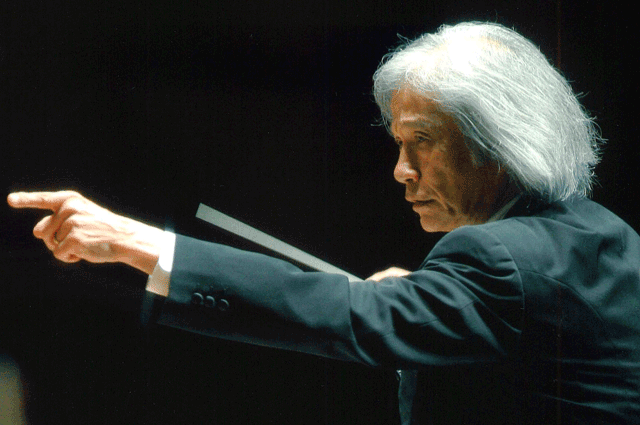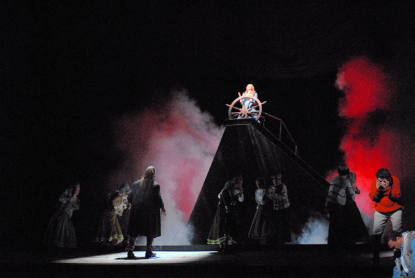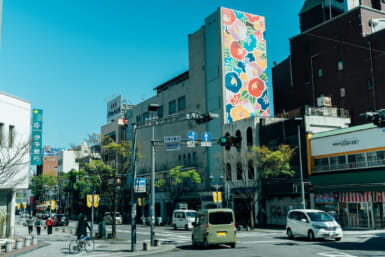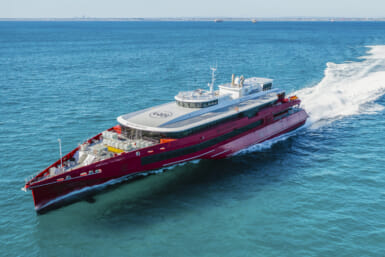Taijiro Iimori, Artistic Director of Opera at the NNTT brings a unique approach to Richard Wagner’s Flying Dutchman
By Sarah Custen
Taijiro Iimori is a delightful man, in many ways. Full of joy, wonder and surprises, he is animated and radiant when discussing music. He is often seemingly overwhelmed by the power of the story he’s telling or the image he wants to convey, and then is off on another fascinating track.
Such energy and vivacity belie Iimori’s 73 years, the majority of which have been spent making a name for himself as maestro and conductor in Europe, Asia and the US. Now, at what could be considered the pinnacle of his career, he’s stepped into his most prestigious role yet: Artistic Director of Opera for the New National Theatre, Tokyo. Yet, to hear him tell it, this cumulative experience is simply a matter of hard work, good luck, and fate. “Some unseen power always pulled me into the opera,” he said.
“The orchestra is huge, the music is demanding, the story includes everything from the beginning of the world, and the end; philosophy and love and the struggle for power.”
After debuting with a Fujiwara Opera Company production of Puccini’s Sister Angelica (“A kind of destiny,” Iimori said), he went on to win multiple international conducting competitions, honing his craft in New York City, and with work in Germany, Italy, Spain, Austria, and Japan. Perhaps his most notable post is as Musical Assistant at the Richard Wagner festival in Bayreuth, Germany, where he not only developed a passion for and understanding of the composer that would distinguish him as an expert within the field, but he also met (and delighted) Wagner’s granddaughter, Friedelind, and her two opera director brothers, Wieland and Wolfgang.
“Coincidence, again,” explained Iimori, with a bright smile. He takes his new role with NNTT with the same strong sense of humility. In regards to his new role with NNTT, he said, “I was surprised: all of a sudden, such a big responsibility with the New National Theatre.”
“I was a conductor always, making music with orchestra or opera, singers and chorus, but this is a position that also includes deskwork and management. So I thought ‘No it’s not for me!’ [laughs] But the New National Theatre had a very good understanding of my interests and experience,” he added. “I’m glad now; I can really dig into this opera.”
And dig in he did, conducting Wagner’s Parsifal in October, and now preparing for January’s production of The Flying Dutchman. “The orchestra is huge, the music is demanding, the story includes everything from the beginning of the world [to the present], and the end; [and] philosophy and love and the struggle for power. Everything is included. It’s not easy. Wagner has a lot to say.”
Indeed, Iimori’s easygoing personality could not be in starker contrast to Wagner’s moody theatrical works. The Flying Dutchman, for example, draws its premise from a legendary ghost ship and its captain, who is fated to sail the seas, doomed to immortality, with true love as his only possible salvation.
“From the beginning of the overture, it’s dramatic,” said Iimori. “Wagner paints the scene, and you can see those paintings. You can feel the wind. You can get sea sick!”
However, the musical structures are not difficult, and other than a basic understanding of the plot, he sees the opera as quite accessible. “Don’t think too hard about it, because the music is so expressive and strong, it will come into you. And there are many ways of understanding it. There won’t be only one way.”
Even for the uninitiated, Iimori believes that opera has something to offer. “I think this whole world is turning always faster and faster, and of course younger people, they have to [follow]. It’s fun, too, and everybody gets excited. But on the other hand, I think there are things you shouldn’t forget, that take time.”
At NNTT, Iimori is taking time to make sure that opera in Japan is not only unforgettable, but also fundamental, by introducing a broad operatic repertoire to the Japanese public, who he said are developing an interest in opera, but they haven’t yet made it a natural part of their lives, which is what he sees in Europe.
“Japanese people understand it [opera], but they just need to let go and enjoy it,” he said. “It’s nothing to learn or study,” he added with a smile. “Just…enjoy it.”
Performances of The Flying Dutchman begin on January 18 at the NNTT. For more information and to reserve tickets, please visit NNTT.










